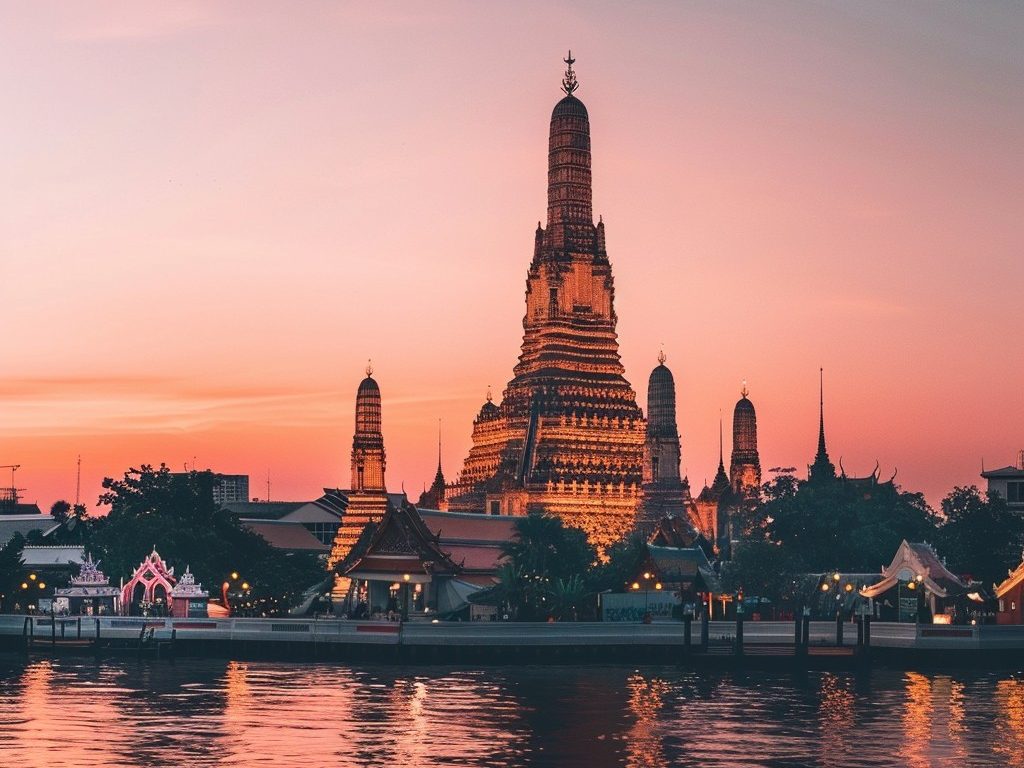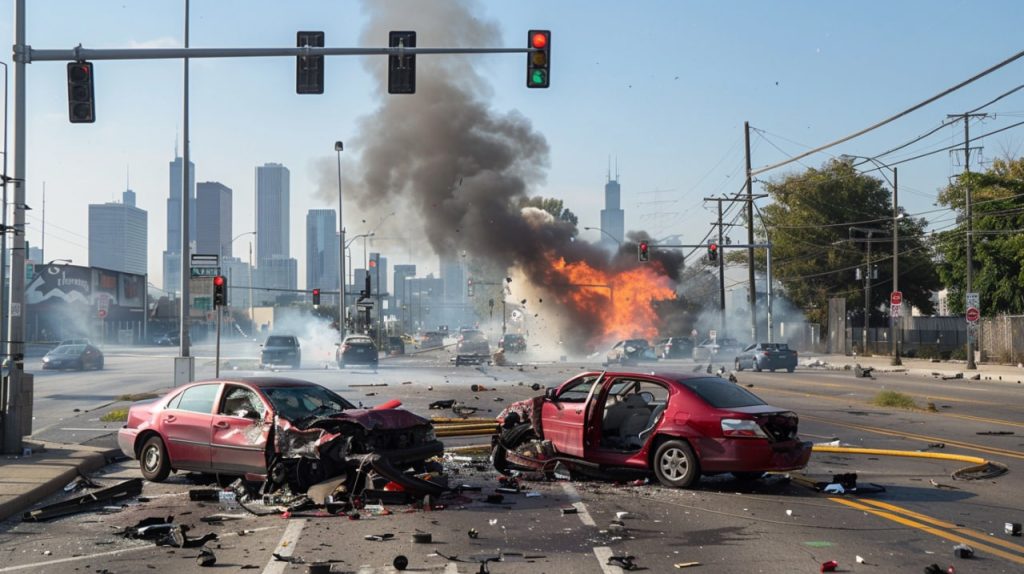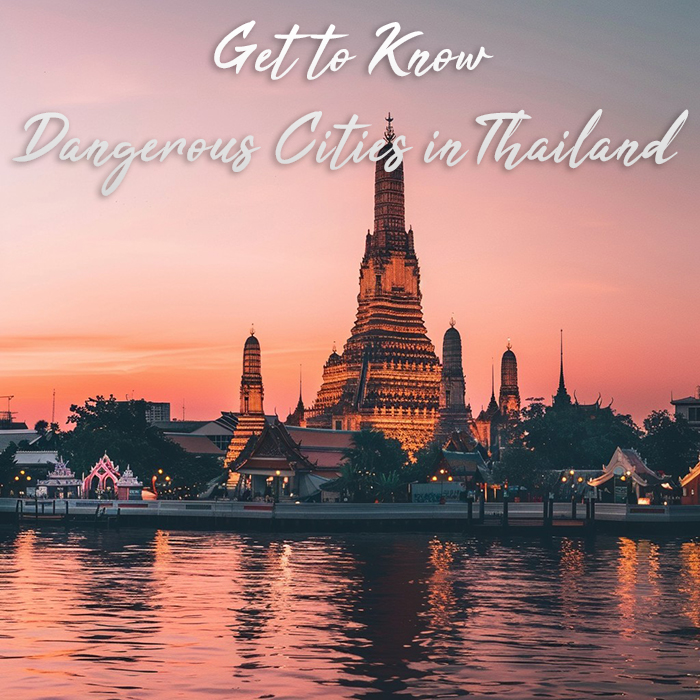Thailand, known for its stunning landscapes, rich culture, and vibrant cities, attracts millions of tourists each year. However, like any destination, certain areas pose risks that travelers should be aware of to ensure a safe and enjoyable experience. In this article we will explore the dangerous cities in Thailand, highlights potential threats from wildlife and the environment, as well as human-related risks, and we will offer essential safety tips for visitors.

Reading Suggestion: Best airlines in Thailand
Cities with Notable Risks
- Bangkok:
As Thailand’s capital, Bangkok is a major tourist destination but also one of the cities where travelers may encounter various dangers. Petty crimes, such as pickpocketing and scams, are prevalent, especially in crowded areas like markets and public transportation. Additionally, the city’s traffic can be chaotic, increasing the risk of accidents. - Pattaya:
While Pattaya is famous for its vibrant nightlife, it also has a higher density of crime related to alcohol consumption and associated behaviors. Travelers should be cautious of potential scams, violence, or unwanted advances, particularly in nightlife districts. - Chiang Mai:
Although generally safer than Bangkok or Pattaya, Chiang Mai has its share of issues. The city is known for street dogs, which can sometimes be aggressive, posing a risk to pedestrians. Moreover, in the late summer months, the air quality deteriorates due to agricultural burning, which can affect health. - Krabi:
Krabi draws tourists with its stunning beaches and natural beauty, but it’s crucial to be wary of natural hazards. While engaging in activities like rock climbing or water sports, accidents can happen if proper safety precautions aren’t taken. Additionally, the region is home to snakes and other wildlife that can pose risks if encountered unexpectedly.
Crime Rates
- In recent years, the crime rate in Thailand has seen fluctuations. According to the Royal Thai Police, there were approximately 1,265 reported thefts in Bangkok alone in 2020.
- The crime index in Thailand ranks it 65th out of 139 countries globally, according to Numbeo, indicating a moderate level of crime overall.
Traffic Accidents
- Thailand has one of the highest rates of road fatalities in the world, with approximately 22,000 deaths per year due to road traffic accidents, according to the World Health Organization (WHO).
- An estimated 75% of motor vehicle fatalities involve motorbikes, highlighting the need for caution among travelers choosing to ride motorcycles.

Threats from Wildlife
Thailand’s rich biodiversity is one of its attractions, but it also presents dangers. Consider the following potential threats:
- Street Dogs: Stray dogs are common in many Thai cities. While most are harmless, some may become aggressive, especially if they feel threatened. Avoid approaching or provoking these animals and steer clear of packs.
- Snakes: Various species of snakes inhabit Thailand, including some venomous ones. Hiking in nature reserves or rural areas increases the likelihood of snake encounters. Stay on marked paths and be aware of your surroundings.
- Insects: Mosquitoes can transmit diseases such as dengue fever and malaria. Travelers should protect themselves using insect repellent, wearing long sleeves, and staying in accommodations with screens or air conditioning.
Wildlife Encounters
- Thailand is home to approximately 200 species of snakes, with about 60 species known to be venomous. This makes awareness when hiking or exploring natural areas critical.
- The risk of rabies is notable, as an estimated 60,000 deaths occur globally each year from rabies, with a significant number of cases stemming from dog bites in regions where travelers may interact with stray animals.

Insect-Borne Diseases
- The country reported approximately 20,000 cases of dengue fever in 2019 alone, underscoring the importance of mosquito protection strategies for travelers.
- Malaria remains a concern in some rural areas, with an average of 25,000 cases reported per year among both locals and travelers.
Environmental Hazards
Knowing the environmental risks is crucial for safety:
- Monsoon Season: Thailand experiences a monsoon season, which can lead to flooding, mudslides, and dangerous travel conditions. The most severe storms usually occur between May and October. Monitor weather updates and avoid traveling to areas prone to flooding during this time.
- Water Activities: While Thailand offers numerous water activities, accidents can occur due to strong currents or poorly maintained equipment. Ensure that you only participate in activities with reputable companies that prioritize safety.
Emergency Response
Thailand’s emergency services may take an average of 20 to 40 minutes to respond to emergencies in urban areas due to traffic congestion, emphasizing the importance of being prepared for situations that may require swift action.
Human-Related Risks
Human threats can arise in crowded urban areas:
- Scams: Tourists are often targeted by scams, ranging from overpriced taxi rides to fake tour guides. Always use reputable transportation services and research attractions beforehand. Avoid offers that seem too good to be true.
- Nightlife Risks: In cities like Pattaya and Bangkok, the nightlife can turn dangerous. Be cautious of overconsumption of alcohol, as it can lower inhibitions and increase vulnerability to crime. Additionally, remain aware of your surroundings and avoid leaving drinks unattended.
- Aggressive Vendors: In markets, some vendors may use aggressive sales tactics. Politely decline to engage and move on if you feel uncomfortable.
Scams and Fraud
A survey by the Tourism Authority of Thailand indicated that approximately 22% of tourists reported having encountered scams during their stay in the country, with tuk-tuk and taxi scams being the most common.
Safety Tips for Travelers
- Stay Alert: Always be aware of your surroundings, especially in crowded places.
- Avoid Flashy Displays of Wealth: Keep valuables secured and minimize visible displays of money or expensive items.
- Use Trusted Transport: Opt for reputable taxi services or rideshare apps instead of hailing random vehicles from the street.
- Learn Basic Thai Phrases: Understanding a few phrases in Thai can go a long way in building rapport and ensuring smoother interactions.
- Stay Informed: Research any specific risks in the cities you plan to visit by checking travel advisories and local news.
- Travel Insurance: Consider purchasing travel insurance that covers medical expenses and emergencies, especially if engaging in adventure sports.
- Know Emergency Numbers: Familiarize yourself with local emergency numbers, such as the Tourist Police (1155) and health services.
Travel Insurance for Traveling to Dangerous cities in Thailand
Approximately 30% of travelers to Thailand purchase travel insurance, which can significantly reduce out-of-pocket expenses in the event of medical emergencies, cancellations, or lost property.

Conclusion
While Thailand is a remarkable destination filled with breathtaking sights and cultural experiences, it is essential for travelers to be aware of potential dangers. By understanding the risks associated with wildlife, environmental hazards, and human threats, visitors can take proactive measures to ensure a safe and enjoyable trip. With precaution and vigilance, your adventure in Thailand can be memorable for all the right reasons.




